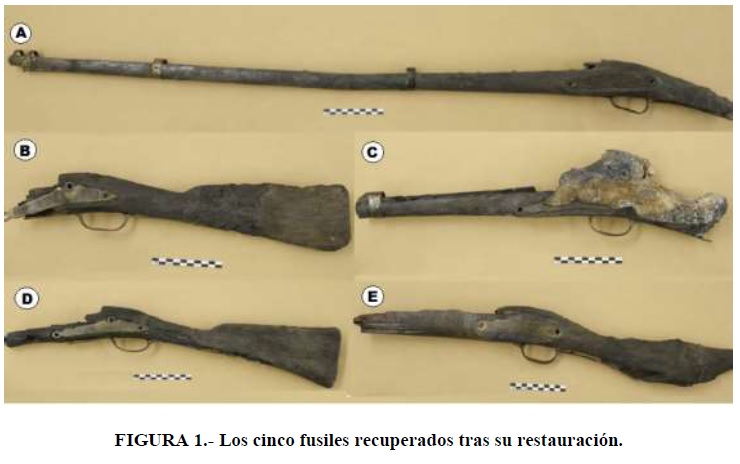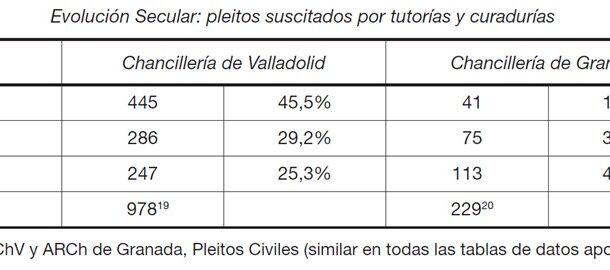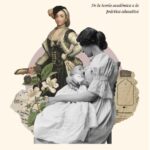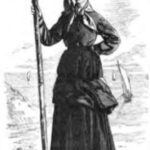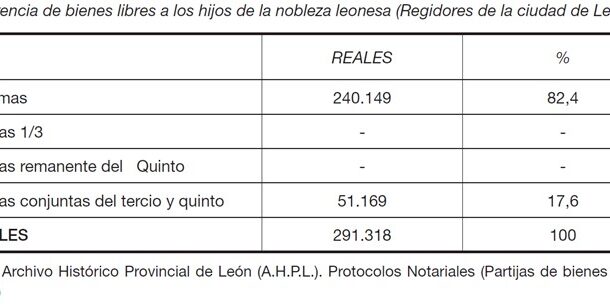
The resource deals with the hereditary strategy of the town councillors of the city of León during the 18th and half of the 19th century. The author shows how a first-born child, male or female, was favoured to the detriment of the other offspring. Thus, we can see that the amounts of free designation received by the lucky ones could be up to three times that of the rest of the siblings. However, in most cases, the amounts of difference were modest: with the legitimate share balanced, the free disposal assets hardly represented a significant contribution.
Collection: Statistics
Project: 3. Rural world and urban world in the formation of the European identity., 4. Family, daily life and social inequality in Europe.
Chronology: XVIII, XIX
Scope: Secondary Education, Baccalaureate, University
Link: https://www.adeh.org/revista/2013,%202/Juan%20M%20Bartolome.pdf
Resource type: Statistics
Format: Table
Source: Bartolomé Bartolomé, J. M. (2013). "El acceso de los jóvenes de la nobleza a la herencia: el ejemplo de las familias de regidores leoneses (1700-1850)", en, Revista de Demografía Histórica, XXXI, 2, p. 35.
Language: Spanish
Date: 2013
Owner: Pablo Ballesta Fernández (Modernalia)
Copyright: ©Revista de Demografía Histórica ©Juan Manuel Bartolomé Bartolomé
Abstract: Data analysing the distribution of free assets in inheritances according to sex and testator's preference
Image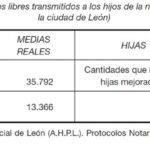
Tags


